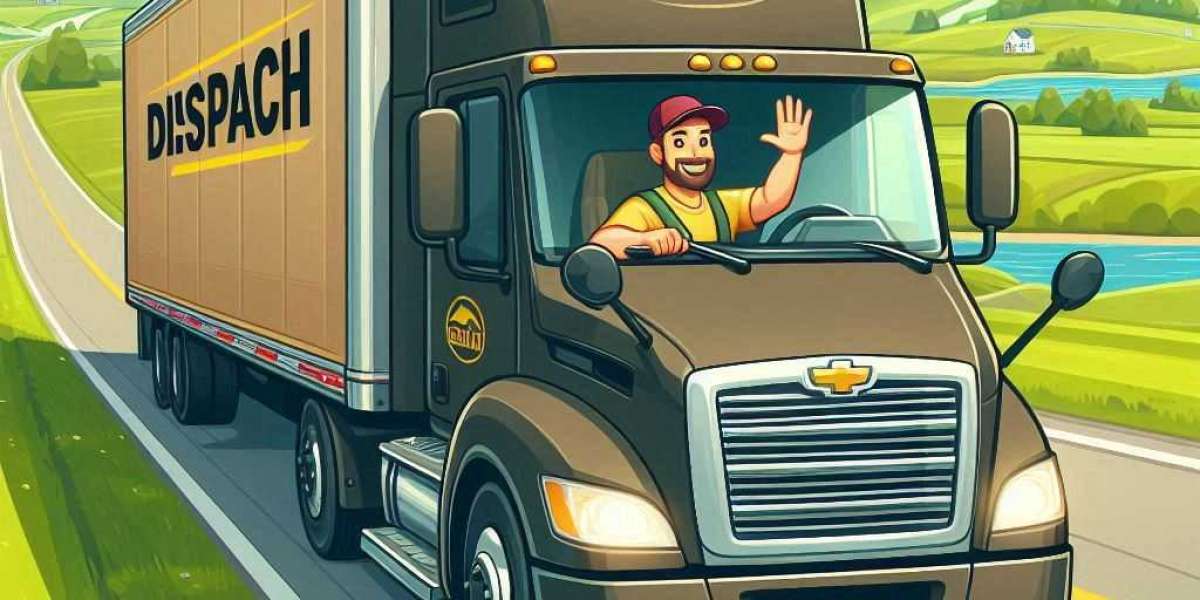The freight industry is undergoing a transformative shift as dispatch services evolve to meet the demands of a rapidly changing market. As e-commerce grows, consumer expectations rise, and technology advances, the need for innovative dispatch solutions has never been greater. This article explores how dispatch services are driving innovation in the freight sector and what the future holds for logistics and transportation.
Understanding the Role of Dispatch Services
Freight dispatch services serve as the backbone of logistics operations, coordinating the movement of goods from origin to destination. They manage scheduling, routing, and communication between shippers and carriers, ensuring efficient transportation processes. Effective dispatching is crucial for optimizing freight movement, reducing costs, and enhancing service levels.
Key Functions of Dispatch Services
- Routing Optimization: Dispatch services utilize advanced algorithms and software to determine the most efficient routes for shipments, minimizing travel time and fuel costs.
- Real-Time Tracking: With GPS and tracking technology, dispatchers can monitor shipments in real time, providing valuable updates to customers and enabling proactive problem-solving.
- Load Management: Efficient load management ensures that vehicles are utilized to their maximum capacity, reducing empty miles and enhancing profitability for carriers.
Innovations Driving the Future of Dispatch Services
Adoption of Advanced Technology
The freight industry is increasingly adopting advanced technologies that enhance dispatch services. From artificial intelligence (AI) to blockchain, these innovations are reshaping how goods are transported.
Artificial Intelligence (AI)
AI is revolutionizing dispatch operations by enabling predictive analytics and automating decision-making processes. For instance, AI can analyze historical data to forecast demand, optimize routing, and improve overall efficiency. This predictive capability allows dispatchers to make informed decisions, reducing delays and improving service levels.
Blockchain Technology
Blockchain technology offers enhanced transparency and security in freight operations. By creating a decentralized ledger, all parties involved in the supply chain can access real-time information about shipment status, reducing the risk of fraud and errors. This transparency fosters trust among stakeholders and enhances collaboration.
Integration of Internet of Things (IoT)
The Internet of Things (IoT) is transforming how dispatch services operate. By connecting devices and sensors, dispatchers can monitor the condition of goods in transit, track vehicle performance, and gather valuable data. This connectivity enables real-time insights, allowing for better decision-making and more efficient logistics management.
Emphasis on Sustainability
As environmental concerns gain prominence, dispatch services are embracing sustainable practices. Companies are focusing on optimizing routes to reduce fuel consumption, utilizing alternative fuels, and implementing eco-friendly packaging solutions. Sustainable logistics not only benefits the environment but also enhances brand reputation and customer loyalty.
Challenges Facing Dispatch Services
While innovation is driving significant progress in dispatch services, several challenges remain:
Capacity Constraints
As demand for freight transportation continues to grow, capacity constraints pose a significant challenge. Finding enough qualified drivers and available vehicles can lead to delays and increased costs. Dispatch services must develop strategies to mitigate these constraints while maintaining service quality.
Regulatory Compliance
Navigating the complex landscape of regulations is essential for dispatch services. Compliance with local, national, and international regulations can be daunting, requiring ongoing education and adaptation to new laws. Ensuring compliance is critical for avoiding penalties and maintaining operational efficiency.
Technological Integration
While technology offers numerous benefits, integrating new systems with existing operations can be complex. Dispatch services must invest in training and development to ensure that employees can effectively use new tools and technologies.
The Future of Dispatch Services
Enhanced Automation
As automation technologies continue to advance, the future of dispatch services will likely see increased reliance on automated systems. These systems can streamline operations, reduce manual errors, and enhance efficiency. From automated dispatching to driverless vehicles, the potential for automation is vast.
Growth of E-commerce and Last-Mile Delivery
The rise of e-commerce is reshaping logistics, particularly in the realm of last-mile delivery. Dispatch services are adapting to meet the unique challenges of urban deliveries, including managing tight schedules and navigating traffic congestion. Innovative solutions such as crowdshipping and micro-fulfillment centers are emerging to address these challenges.
Data-Driven Decision Making
The future of dispatch services will increasingly rely on data-driven decision-making. By leveraging analytics and real-time data, dispatchers can optimize operations, identify inefficiencies, and enhance customer service. This data-centric approach will be vital for maintaining competitiveness in the freight industry.
Conclusion
Dispatch services are at the forefront of innovation in the freight industry, driving advancements that enhance efficiency, transparency, and sustainability. As technology continues to evolve, dispatchers must adapt to new tools and methodologies to meet the challenges of a changing landscape. By embracing innovation and focusing on customer needs, [freightdispatchservices.com] will play a pivotal role in shaping the future of freight transportation.







